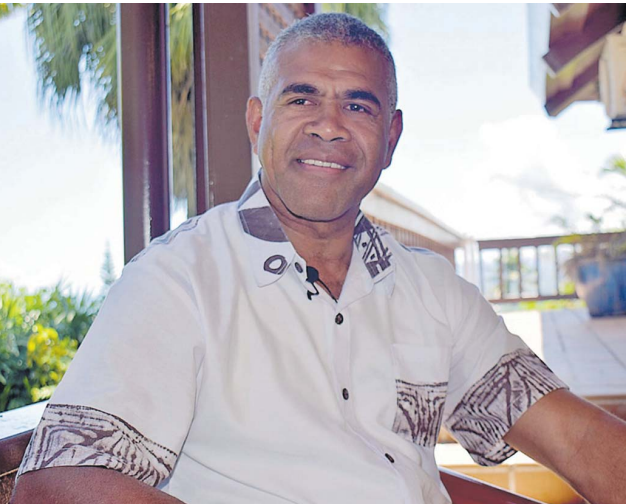FIJI’S approach to wound management and diabetic care is dangerously outdated and urgently in need of reform, says outspoken private doctor Jone Hawea.
Dr Hawea said Fiji continued to rely on antiquated methods for managing wounds, especially among diabetic patients, leading to unnecessary amputations that could be avoided with modern intervention.
“Wound management is way too outdated, the surgical approaches we’re using for amputations are behind by decades,” he said.
While conducting screenings in Labasa, he said the threshold for performing amputations remained alarmingly low.
“There are a lot of myths and false signs associated with diabetes and diabetic infections, and there needs to be an overhaul of the whole by the government.”
He said the trend of younger patients requiring amputations was deeply concerning and signalled a broader issue of poor early intervention, misinformation, and systemic neglect.
“We’re seeing younger patients lose limbs because we’re not catching the problem early enough, or because we’re still using the same outdated surgical responses we used 30 years ago.”
Beyond clinical treatment, he said there were deeper concerns about the role of food quality and lifestyle in the country’s growing diabetes crisis.
He said chemicals in food, particularly artificial additives and preservatives found in imported and processed products, were having a long-term effect on the health of Fijians.
“The role of chemicals in our food, and how they affect diabetes and other non-communicable diseases, has been well established in research, but we are doing very little about it.”
With amputation numbers rising and patient outcomes worsening, he warned that without urgent intervention, Fiji risked deepening a national health crisis that would have long-term consequences.
Doctor defends kava role
WHILE kava consumption remains a widespread cultural practice in Fiji, it should not be singled out as the root cause of the nation’s growing diabetes crisis, says private doctor Jone Hawea.
“I get into trouble if I try and make non-scientific associations between kava and diabetes,” he said.
Dr Jone Hawea warns that outdated diabetes care in Fiji is causing preventable limb loss.
Dr Hawea said although kava consumption may contribute to certain lifestyle-related health issues, it was misleading to directly associate the traditional beverage with diabetes without proper evidence.
“What I know is grog is not the problem. It’s the practices that surround the consumption, or the overconsumption of kava that is definitely a contributing factor, but I cannot say it’s a direct cause.”
He said the real concern lay in the broader context of people’s lifestyles, including poor nutrition, lack of exercise, and other harmful habits.
“There’s the poor nutrition, the food we eat, our eating habits, alcohol and smoking, all of these must be considered. Then there’s the sedentary lifestyle, and the stresses of everyday life.”
He is calling for more comprehensive scientific research into the link between kava consumption and non-communicable diseases, such as diabetes, to better inform public health strategies.
Call for early care
PRACTICAL solutions have been missing in Fiji’s long battle against diabetes-related amputations, according to private doctor Jone Hawea.
While health officials continue to report rising numbers, Dr Hawea said, very little had been done to stop the problem where it started.
“We’ve been quoting statistics for 20 years, meanwhile patients are still losing their legs,” he said.
Dr Hawea said intervention was urgently needed to tackle Fiji’s growing crisis of diabetesrelated amputations, with patients increasingly losing limbs at a younger age, some at 30.
“Once you walk through hospital doors, most patients are already too far gone.”
While conducting screening in Labasa, he said education and awareness programs on diabetes management, foot care, and nutrition, as well as recognising the problems early was needed.
He said diabetes affected people from all ethnicities, ages, and locations in Fiji. The need for accessible, early care is clear, he adds.
‘Idea of amputation the first option a lie’
THIRTEEN years on, the country’s diabetes crisis remains unchanged, according to private doctor Jone Hawea.
“The status of this problem is the same, even after 13 years I had left the hospital and started my own private firm. I saw it early on when I was a surgical registrar in Labasa, and nothing has changed,” he said.
While raising alarm over the continuing trend of diabetes-related complications, Dr Hawea said there was an urgent need for how diabetes cases were managed, particularly around decisions to amputate.
“The idea that amputation is the first option is a lie. It has to be the last resort, and the criteria for deciding this must change.”
He said existing hospital protocols often made it difficult to explore alternatives to surgery.
“Trying to do this in a hospital is nearly impossible because of strict protocols and standards.”
Operating now as a private practitioner, he said he now had the freedom to take a different approach, one he believes can save more lives and limbs.
“I can implement my own concept here. If others want to join me, they have to follow my research backed approach. I’m done waiting for the system to change.”
He says he hopes his initiative will inspire a shift in diabetes care in Fiji, focusing more on prevention and limb preservation



